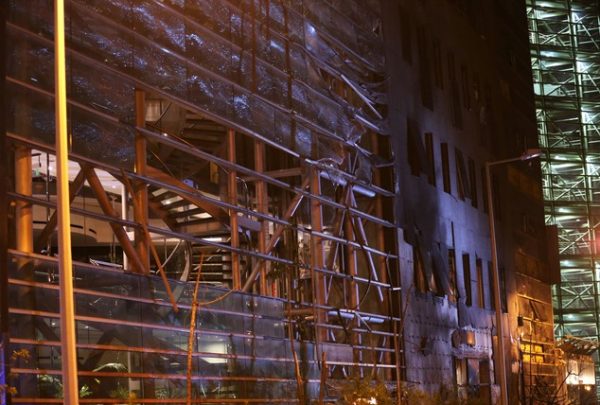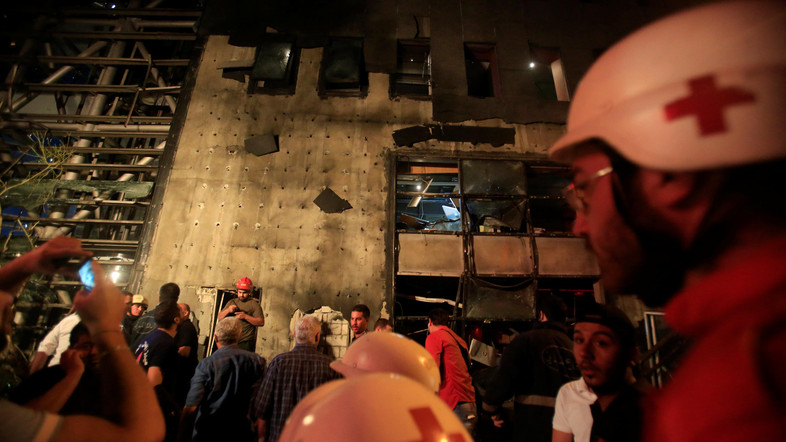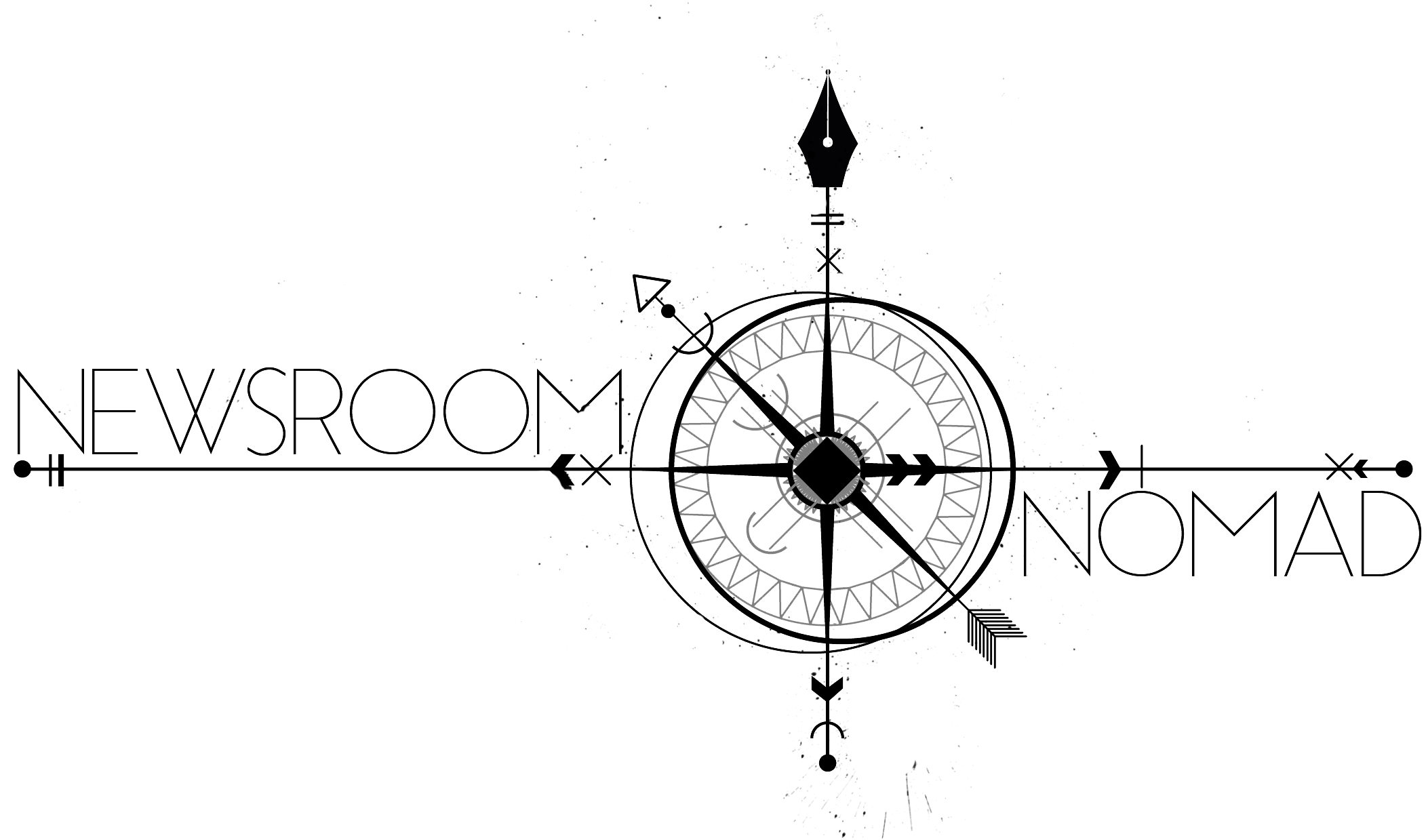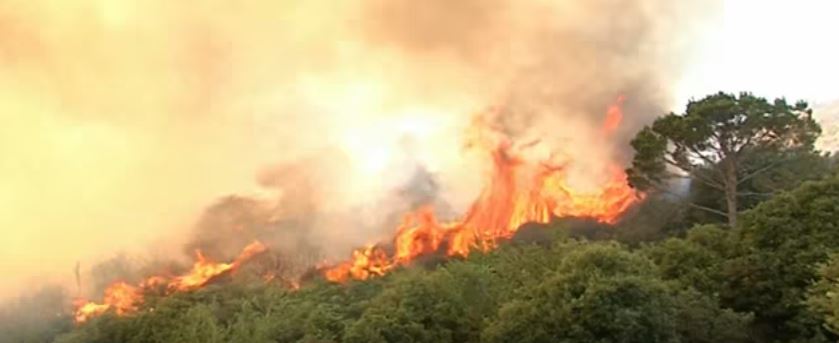A bomb rocked the Lebanese capital of Beirut’s trendy neighborhood of Verdun on Sunday evening, just as people broke their Ramadan fast for the day. Lebanon’s Interior Minister Nuhad Mashnouk confirmed that there were no casualties approximately 30 minutes after the news emerged, settling the hearts of many who were alarmed by the countless news alerts and push notifications. It was later revealed that two persons, identified as security men, were slightly injured and transported to the nearby American University of Beirut Medical Center for treatment.
The Internal Security Forces and the Lebanese Army cordoned off the area and urged citizens, who rushed to the scene, to clear the location for fear of another possible blast. They also feared casualties would rise in light of shattering and falling glass from nearby office blocks prompting them to make the repeated calls for evacuation, to no avail.

The building that had sustained the most damage was that of BLOM Bank. Saad Azhari, its CEO, told reporters that he had little information on the matter, rejecting speculation suggesting that the bank was targeted in light of measures taken against a Lebanese group, namely Hezbollah.
“There was no threat … It’s best to wait for the outcome of the investigations,” he insisted as reporters relentlessly pressed for answers.
Early reports suggested that the explosive device was composed of 2KG of explosive material, with the Internal Security Forces’ head Major General Ibrahim Basbous later stating that a greater amount was used upon his inspection of the scene.
“… Between 10-15 KG …” he said as he pushed past a sea of reporters who obstructed the route outside the site of the blast. “It was planted behind the wall of the bank, in a flower bed,” he added.
The blast was unlike any previous occurrence in Lebanon’s long list of terrorist attacks. For one, nobody was killed. The timing suggests that whoever planted the device was only seeking to send a message, analysts said shortly thereafter.
BLOM is among many banks in Lebanon that have recently been shutting down accounts linked to Hezbollah in the wake of a recent U.S. sanctions law that targets its finances, several outlets reminded.
Lebanon’s wildcard politician Progressive Socialist Party leader MP Walid Jumblatt named the Lebanese Lira as the subject of the explosion, calling for a cessation of attacks against the Governor of the Banque du Liban Riad Salameh, and for the forging of a roadmap between Hezbollah and Lebanese banks.
Investigations are ongoing, and remain thus far inconclusive. No claim of responsibility was made, and Hezbollah has yet to comment on the situation.
It is worth noting that in the days leading up to the blast, several Western embassies had reportedly issued advisories alerting citizens against traveling into Beirut. The Canadian embassy* on Friday allegedly advised citizens not to travel to Downtown Beirut, Hamra, or restaurants, and to “avoid large gatherings”. Though this specific piece of information is nowhere to be found on the embassy’s website, it was shared heavily on local Lebanese media (and social media), raising speculation as to why Lebanese authorities had not looked into the content of the aforementioned advisory to validate or dispute authenticity. Regardless, reporters and a legion of social media users had made their claim: the unverified piece of information must be true and the investigations lead by Security Forces lag.
*The Canadian embassy has since denied the aforementioned information as circulated by the Lebanese media.
Earlier reports are inaccurate: The Embassy of Canada to Lebanon did not send any security instructions to staff for this weekend
— Canada in Lebanon (@CanadaLebanon) June 13, 2016
Lebanon in general, and Beirut specifically, have relatively been peaceful in the past months. Although the capital has been the target of terrorist attacks, the most recent of which occurred in November 2015, killing 43 people and injuring 200, cautious calm prevailed throughout the period since. The attack of November 2015 was adopted, like many others before it, by the Islamic State [Daesh] who cited Hezbollah’s involvement in the Syrian war as a reason. In occurrences of the kind, the media had relied on statements to pin responsibility, but on Sunday evening the verdict was seemingly clear cut. There was no grace period, no fact checking. Instead there was a lot of live television speculation coupled with leading questions. Last night, reporters and news outlets made panic a central theme when their job was to deliver the news and the calls of Security Forces who repeatedly urged citizens to evacuate the scene. Last night, for the first time in many years, there were no trips to blood drenched emergency rooms, up close camera footage of scattered bodies, and heart breaking follow up reports. Is that what the media was missing? Is that why it took it upon itself to seemingly lead investigations? One can only hope that that is not the case.



4 thoughts on “Explosion rocks Beirut’s Verdun, media pins culprits”
Comments are closed.